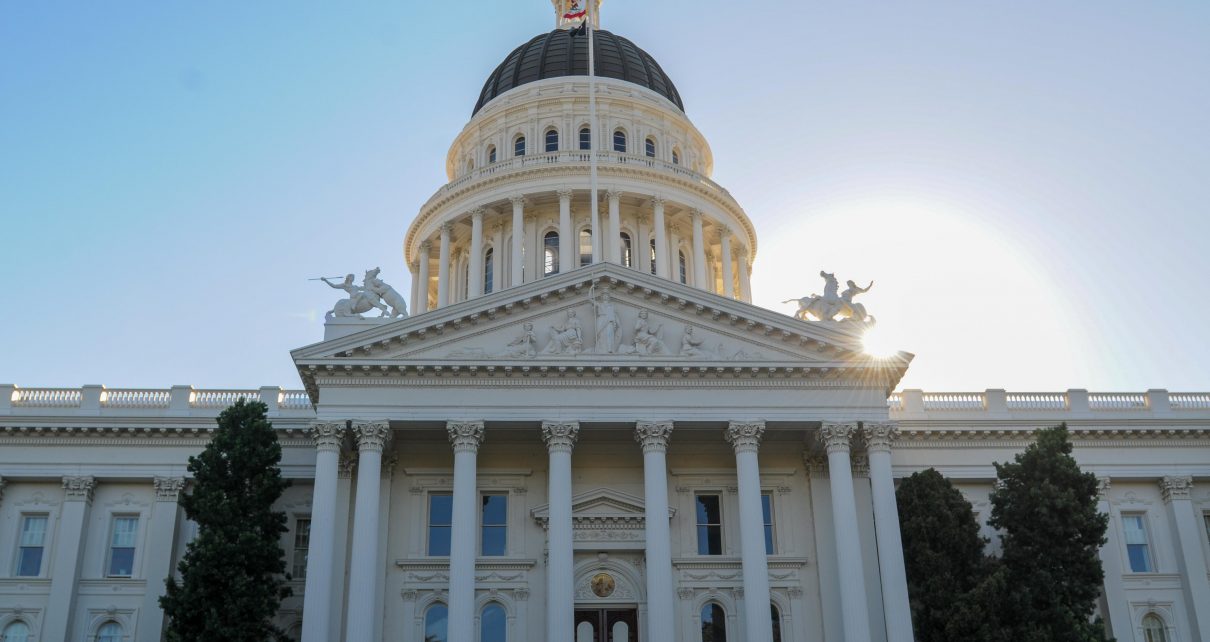
California State Capitol. (Photo: Kevin Sanders for California Globe)
Why Does the California Legislature Conduct Its Work in Certain Ways?
Why does the Governor have to introduced his budget proposal by January 10 each year?
By Chris Micheli, September 13, 2022 6:22 am
Why do the State Assembly and State Senate in the California Legislature conduct their activities in certain ways? I am sure some readers have asked that question at least once! Or so I tell myself. Here are some examples of what I mean with an explanation:
Why does the Legislature convene a new session in early December, but designate the new Session as the following two years (e.g., the upcoming Session will convene on December 5, 2022 and be designated as the 2023-24 Legislative Session)?
California’s Constitution, in Article IV, Section 3(a), provides, in part, the following: “The Legislature shall convene in regular session at noon on the first Monday in December of each even-numbered year and each house shall immediately organize.” Therefore, the Legislature is required to convene on a particular day in early December, even though the Session begins in earnest in early January.
Why does the Legislature choose officers, including unelected persons such as the Assembly and Senate Chaplains?
Article IV, Section 7(a) provides, in part, the following: “Each house shall choose its officers and adopt rule for its proceedings.” Therefore, both the Assembly and Senate are required to choose their officers and adopt their house and joint rules, which usually occurs on the first Monday in December when they convene a new 2-year session.
Why does the Legislature publish the Assembly Daily Journal and the Senate Daily Journal, especially when they are required to video/audio tape all committee hearings and floor sessions?
Article IV, Section 7(b) provides, in part, the following: “Each house shall keep and publish a journal of its proceedings.” Therefore, both the Assembly and Senate are required to publish their respective daily journals.
Why are the Democratic and Republican Caucuses allowed to meet in private without public notice or observation?
Article IV, Section 7(c)(4) provides in full: “A caucus of the Members of the Senate, the Members of the Assembly, or the Members of both houses, which is composed of the members of the same political party, may meet in closed session.” Therefore, the four party caucuses can meet at any time and in any location in private, without notice, and without public observation?
Why is a bill required to be read three times when we have the Internet and other sources to read and hear about proposed legislation?
Article IV, Section 8(b)(1) provides, in part, the following: “No bill may be passed unless it is read by title on 3 days in each house except that the house may dispense with this requirement by rollcall vote entered in the journal, two thirds of the membership concurring.” Therefore, in both houses of the Legislature, a bill must be read three times before it can be voted on. Of course, as the constitutional language provides, this rule can be waived by a 2/3 vote of the house.
Why are there two votes announced on the floor of the Assembly and Senate for a bill that contains an urgency clause?
Article IV, Section 8(d) provides, in part, the following: “Urgency statutes are those necessary for immediate preservation of the public peace, health, or safety… In each house the section and the bill shall be passed separately, each by rollcall vote entered in the journal, two thirds of the membership concurring.” Therefore, while one vote is taken on the Floors of the Assembly and Senate on an urgency bill, the presiding officer must announce that vote twice – once for the urgency clause’s passage and once for the bill’s passage. And the Assembly Daily Journal and Senate Daily Journal will note two separate votes as well.
Why can certain bills be passed even after the Legislature is scheduled to adjourn on August 31 during the even-numbered, second year of their Session?
Article IV, Section 10(c) provides, in part, the following: “No bill may be passed by either house on or after September 1 of an even-numbered year except statutes calling elections, statutes providing for tax levies or appropriations for the usual current expenses of the State, and urgency statutes, and bills passed after being vetoed by the Governor.” Therefore, there are only five types of bills that can be considered after midnight on September 1, if the Legislature remains in session at that time.
Why does the Governor have to introduced his budget proposal by January 10 each year?
Article IV, Section 12(a) provides, in part, the following: “Within the first 10 days of each calendar year, the Governor shall submit to the Legislature, with an explanatory message, a budget for the ensuing fiscal year containing itemized statements for recommended state expenditures and estimated state revenues.” Therefore, the Governor has to propose his or her budget by January 10, including both the revenue picture and the expenditures being proposed.
So, the answer to the initial question is, “Because the California Constitution requires it!”
- Sabotage Prevention Act - December 14, 2024
- Why Would the Legislature Request? - December 13, 2024
- A Different Type of Legislative Statement? - December 12, 2024




One thought on “Why Does the California Legislature Conduct Its Work in Certain Ways?”